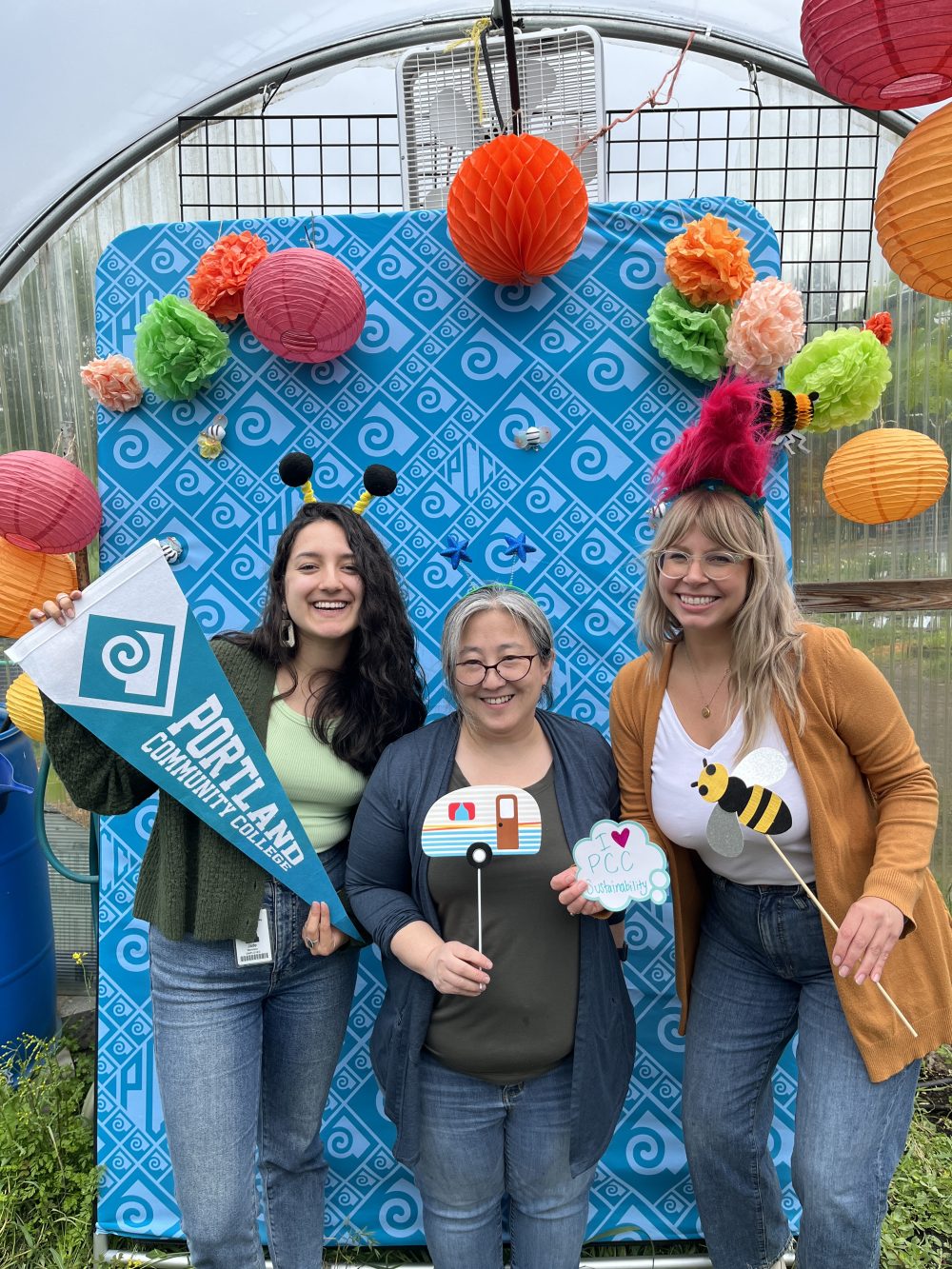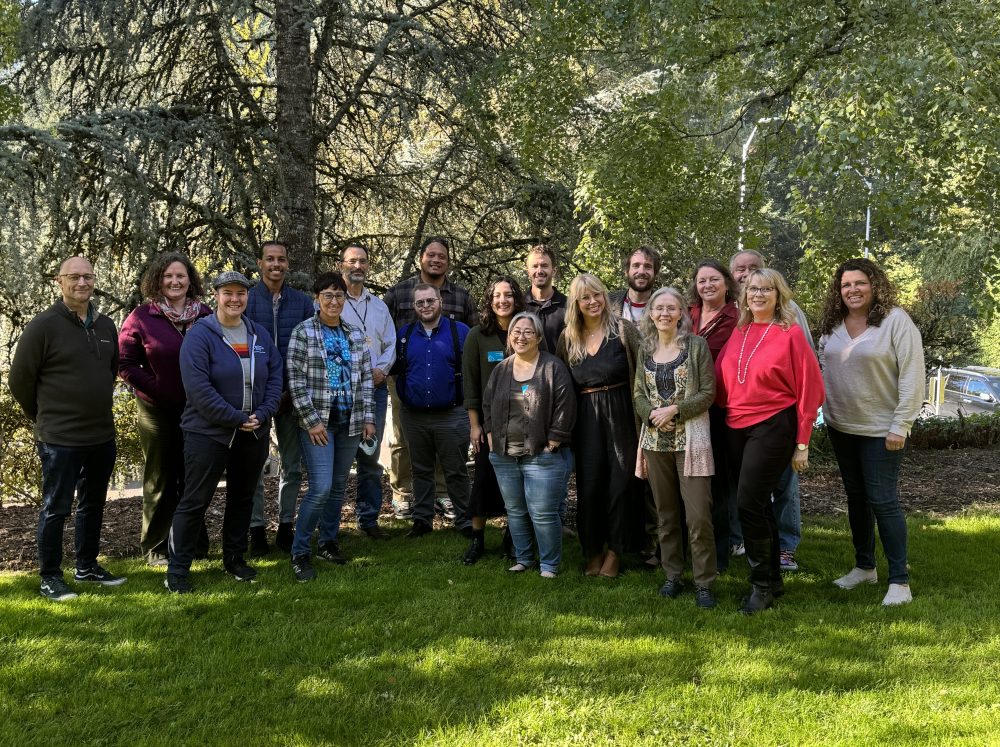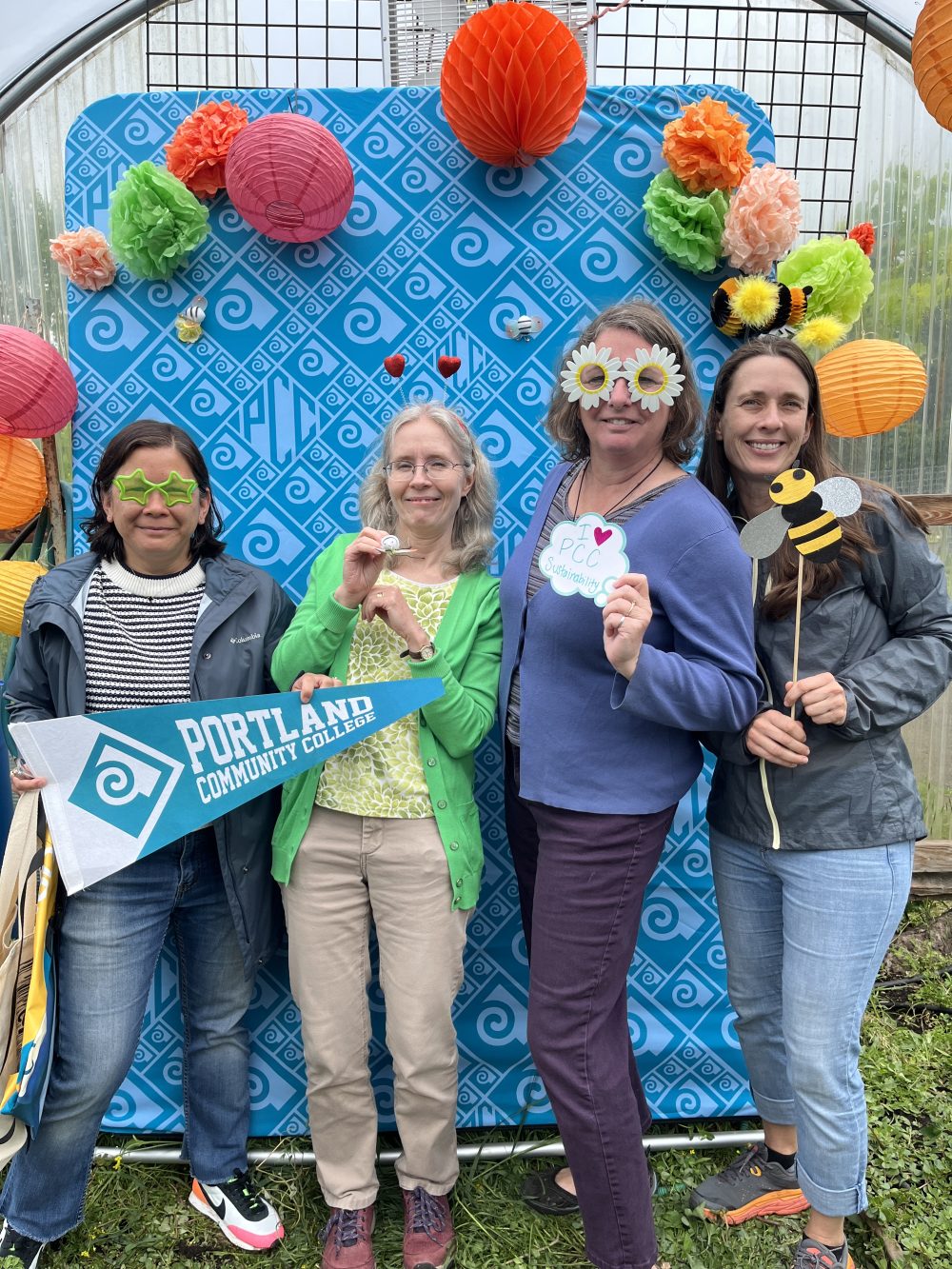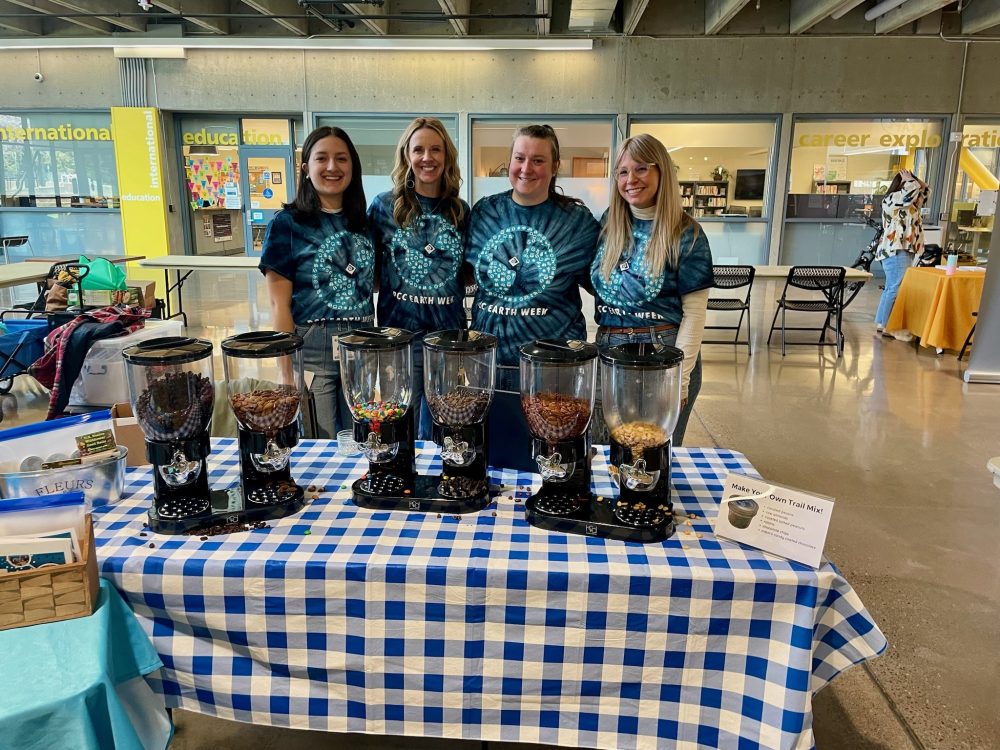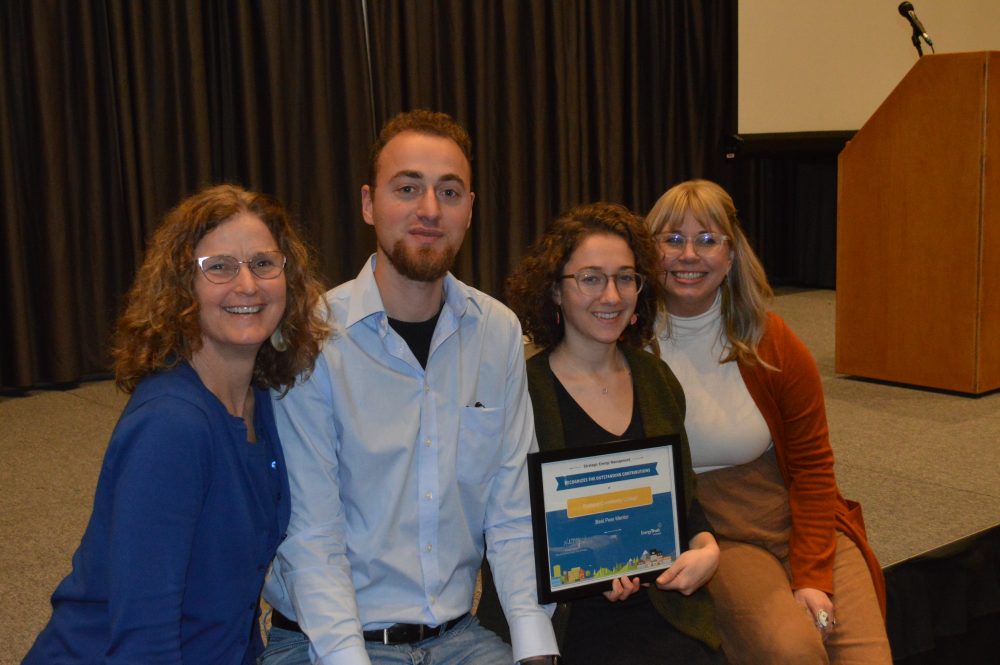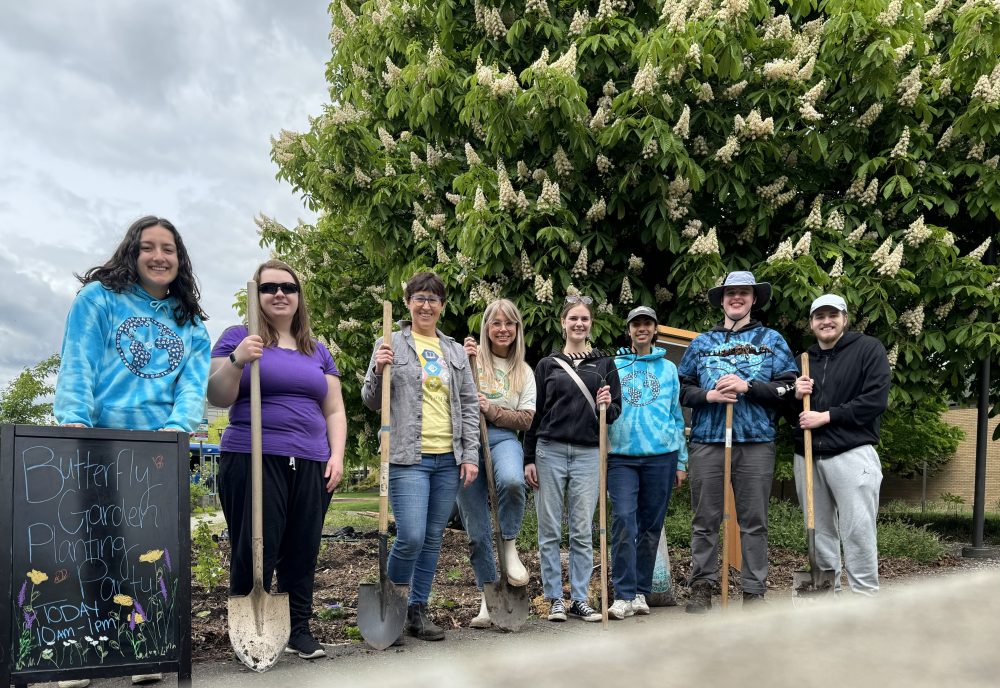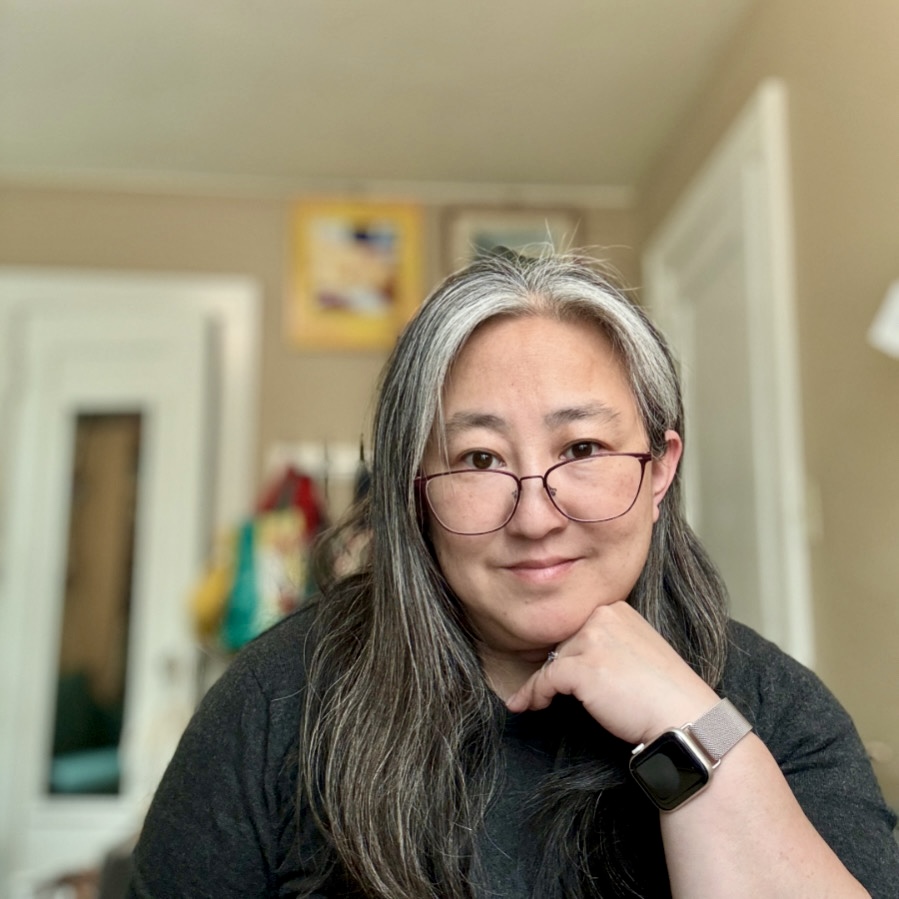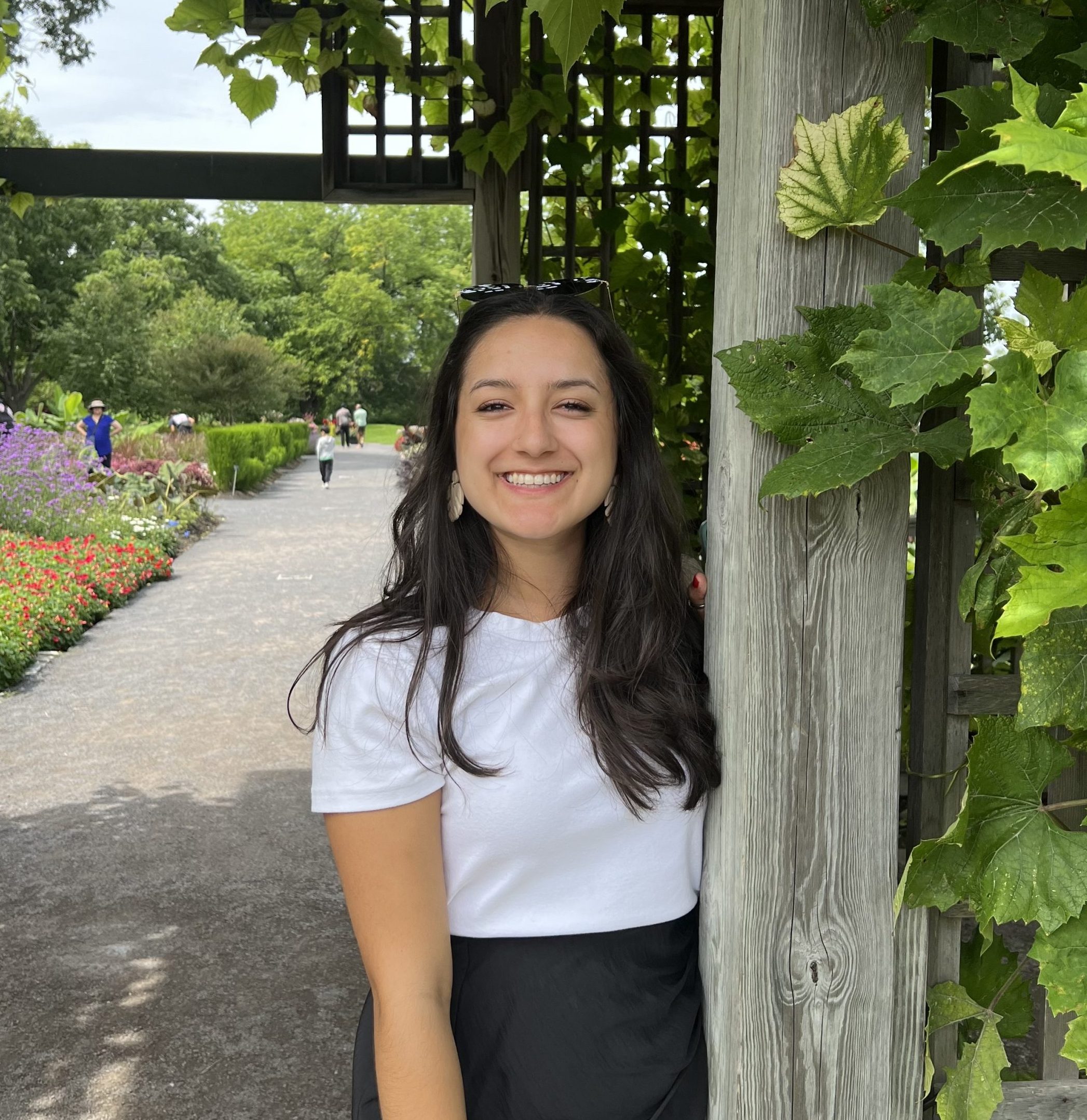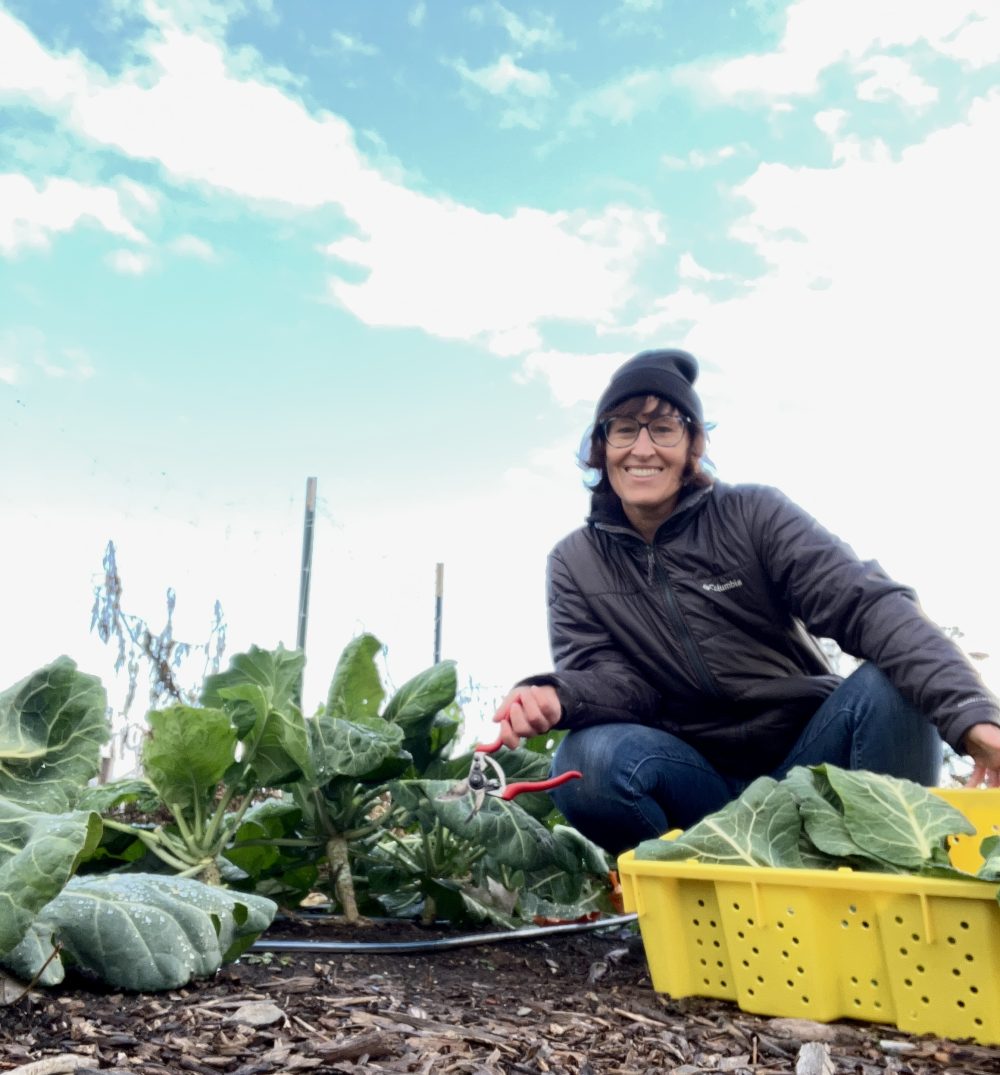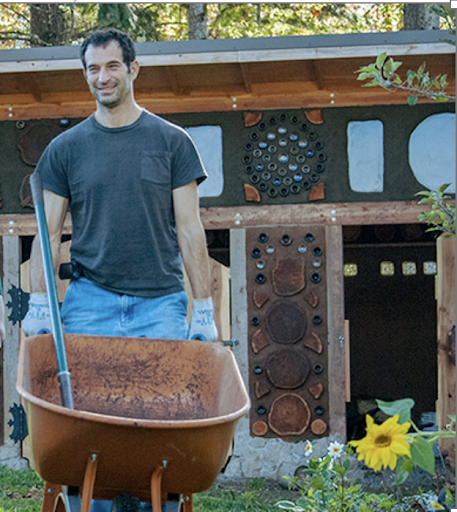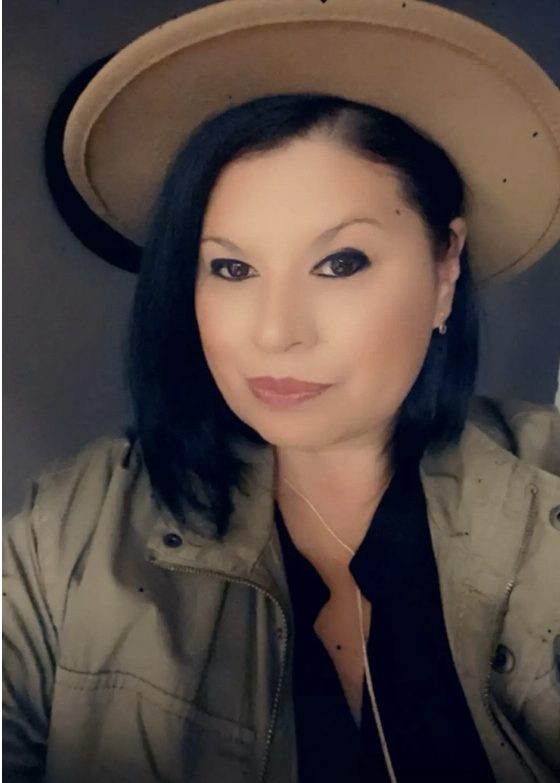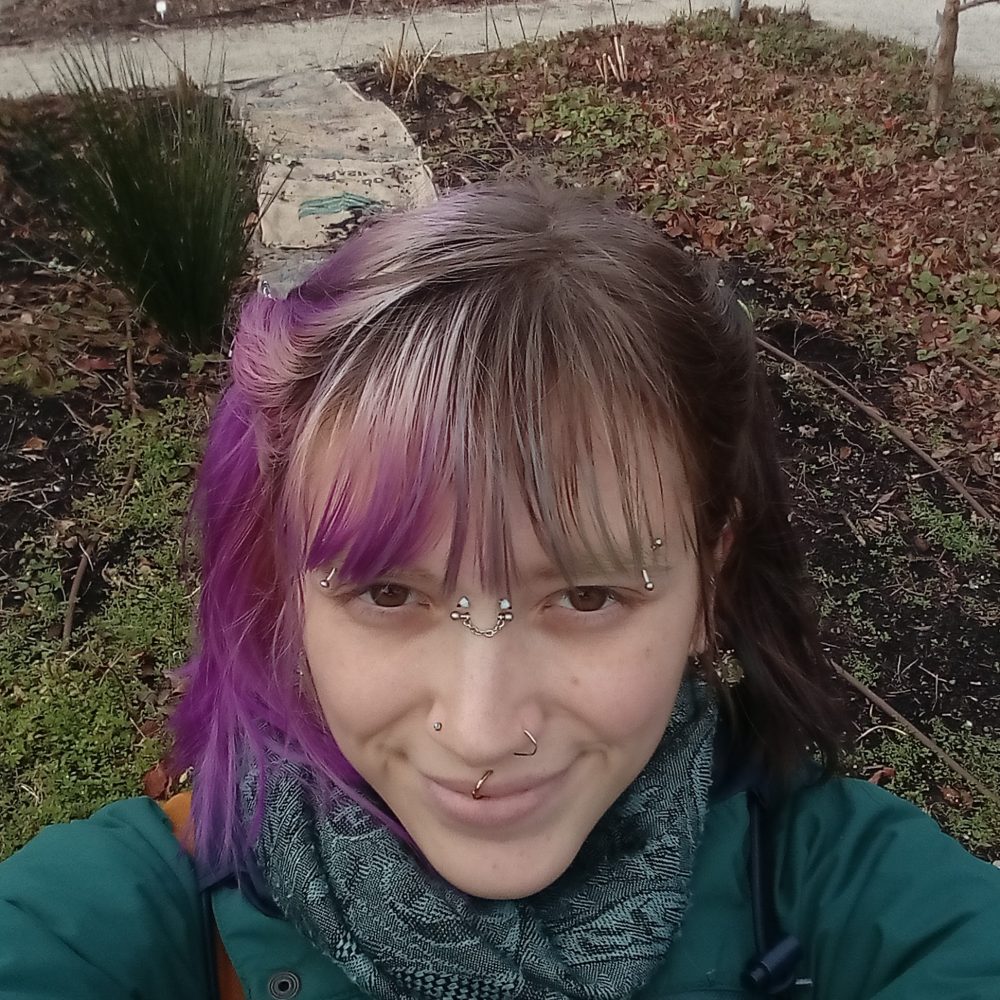About Sustainability at PCC
At PCC we’re all in this together. Issues of environmental degradation, inequity, and economic disparity impact us all. That’s why PCC takes a dynamic, collaborative approach to sustainability, weaving triple-bottom line thinking throughout our strategic planning, campus operations, student initiatives, and academics.
PCC recognizes the role that higher education plays in leading the charge towards a sustainable future and formally adopted the PCC Board of Directors Sustainable Use of Resources Policy (B-707) in 2006. Since then, the college has strengthened its commitments to sustainability, developed three iterations of its Climate Action Plan and have taken significant strides to reduce its environmental footprint and promote education for sustainable development.
District Team
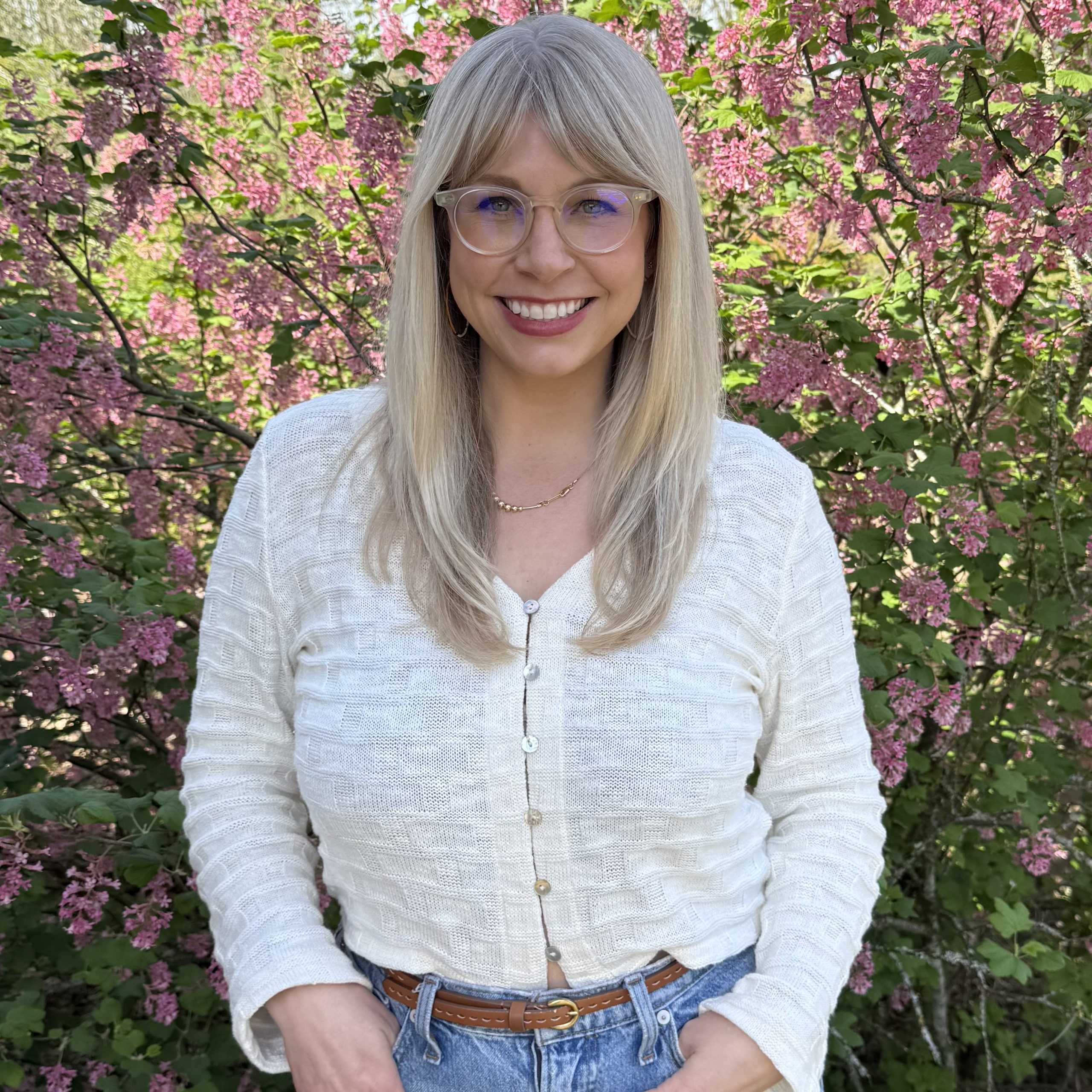
Briar Wray (formerly Schoon) (she/her)
Associate Dean of Sustainability Strategies
Bio
Briar is the Associate Dean for Sustainability Strategies at Portland Community College, coordinating college-wide sustainability programming and implementation of its Climate Action Plan. She also sits on the Multnomah County Advisory Committee for Sustainability and Innovation and helps coordinate the annual Washington Oregon Higher Education Sustainability Conference. Previously, she worked as the college’s Sustainability Analyst and Sustainability Manager. In addition, she has taught sustainability courses at PCC and was a co-founder of the Greater Portland Sustainability Education Network. She holds a Master’s Degree in Sustainability from Arizona State University, as well as a B.A. in Sustainability and a B.S. in Justice Studies. She received her LEED Green Associate and Master Gardener certification in 2016. In her free-time, Briar enjoys crafting, being outdoors, any and all things plant-related and spending time with her family.
Stephania Fregosi (she/her)
Sustainability Analyst
Bio
Stephania Fregosi is the college’s Sustainability Analyst. She completes greenhouse gas inventories, the STARS report, does research, and provides other support. She earned her Masters of Studies in Environmental Law from the Vermont Law School and her Bachelor of Arts in Environmental Studies from Oberlin College. Stephania has worked in a variety of sustainability roles including sustainability coordination, project management, environmental assessment, community development, and environmental education. She has a passion for social justice, equity, and inclusion and recently served on the Diversity & Inclusion Committee as part of AASHE’s advisory board. Stephania spends her free time with her family and dyeing yarn and fiber for other crafters.
Jade Menchaca (she/her)
Sustainability Coordinator
Bio
Jade Menchaca is the college’s Sustainability Coordinator and focuses on outreach, recycling education, and overall improvement of recycling habits on campus through campaigns and special events. She earned her B.A. in Environmental Studies from the University of Oregon. She has many years of experience coordinating programs and events for higher education students to enhance their sustainability, involvement on campus, and created campus-wide food security initiatives. She is passionate about community involvement, social inclusion, environmental education, and waste reduction. She likes to spend her free time cooking, crafting, dancing, and trying out new restaurants.
Garden Team
Moon Doherty (They/Them, Elle)
CA & SE Learning Garden Coordinator
Bio
Moonrose loves being part of community change, the tending of plants, and the sharing of knowledge. As the Learning Garden Coordinator for the Cascade and Southeast gardens, they focus on providing students access to free, healthy food from the gardens through donations to the PCC Panther Pantries, programming around food sovereignty, and events & workshops in the gardens. Moonrose grew up food insecure and knows the barriers and stigmas. They are passionate about students positively accessing food and all things food justice related. Moonrose previously managed the PCC Newberg Center and Rock Creek Learning Gardens focusing on community-building and food liberation through hands-on education and knowledge-sharing. They sometimes teach PCC Community Ed classes on Companion Planting, Organic Gardening, and Native Plant Garden Design. Moonrose is also a small-scale, urban farmer, medicine-maker, dancer, poet and landscaper. Recently, they furthered their medicine craft and learned tinctures, oxymels, and salves. Moonrose feels safest, wildest, and most grounded when in community with plants and sharing knowledge with people. They also enjoy rollerskating, backpacking, and swimming in rivers. Find them in the garden and come say Hi.
Miriam Latzer (she/her)
RC Learning Garden Coordinator
Bio
Miriam brings over 12 years of experience running small, certified naturally grown farms in the Hudson Valley of New York. She earned a Master’s Degree in Environmental Land Use Planning from Rutgers University in New Jersey. Before coming to PCC, she worked with public school communities in New York City to pilot school-based farm shares that will continue with a beginning farmer at the helm. She also worked as an assistant grower and educational coordinator for the Poughkeepsie Farm Project located on the Vassar college campus. Her ties to Portland stretch back to 1998 when she served as an AmeriCorps member and grew vegetables on the grounds of the Northeast Emergency Food Program. She’s glad to return to the area and provide her expertise to our Learning Garden and sustainability efforts.
Peter Ritson (he/him)
SY Environmental Center Coordinator
Bio
Dr. Peter Ritson, has over 30 years of educational experience at university, community college and K12 providing education, leadership and direction for programs and services for students. Since 2014, Peter has served as the Environmental Center Coordinator and Sylvania Learning Garden Coordinator at Portland Community College. Peter is an accomplished environmental scientist and educator. With a deep passion for sustainability, environmental education and equity, Peter has dedicated his career to fostering a greater understanding, appreciation of the natural world and fostering access and opportunities for all.
Dr. Ritson’s work is characterized by his commitment to experiential learning and community involvement. He believes that by connecting people with nature and providing them with the knowledge and tools to make sustainable choices, we can collectively create a healthier, more resilient environment for future generations.
Stephanie Romero (she/her)
NC Learning Garden Coordinator
Bio
Stephanie Romero is a PCC graduate, and grew up in a small, beautiful town in Oregon that is surrounded by agriculture. She was actively involved in caring for and planting acres of apple, filbert, and walnut orchards as well as wine grapes while working in an Oregon fruit and nut orchard with her father. Now, as PCC Newberg Center’s Learning Garden Coordinator, she is sharing her knowledge with students and the community through fun, educational events and activities. She believes learning about growing natural, organic foods is very important, and I would like to inspire future generations to use sustainable gardening techniques.
Hailey Swain (any pronouns)
CA & SE Learning Garden Assistant
Bio
Hailey has been working in urban school gardens across the city since graduating from high school in 2019. They’re passionate about showing people how to grow fresh food within the city to promote sustainability, accessibility, and community.
SPARC Team
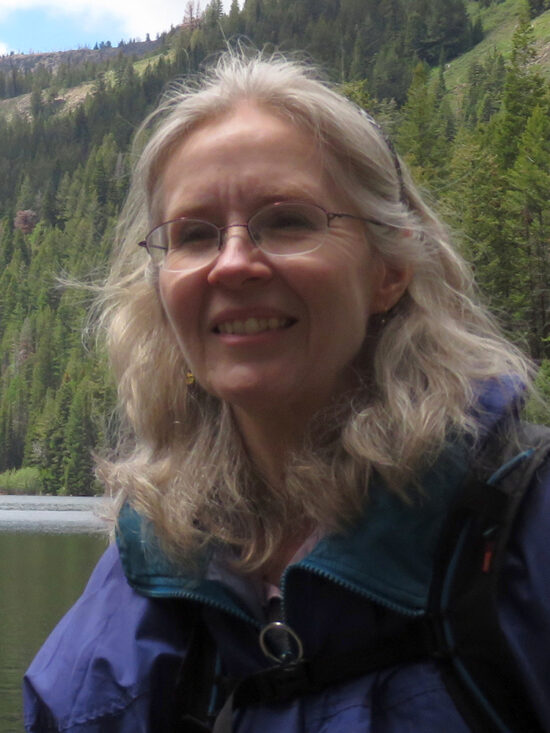
Roberta Richards (she/her)
SPARC Co-Chair and Reference Librarian
Bio
Roberta Richards is a Reference and Instruction Librarian at the beautiful Southeast Library, and is currently serving as co-chair of SPARC (the Sustainability Practices and Resources for Curriculum council) along with Peter Ritson. Roberta has studied many things in many places, and her degrees include a Ph.D. in Social Ethics from the University of Southern California and a Masters of Library and Information Science from Emporia State University. She has worked at PCC for over 20 years at all four campus libraries, and combines her commitments to information literacy and climate justice by creating research guides on the library website. In 2021, the college granted Roberta a professional leave to study the challenges of teaching the climate crisis at the community college. Some of what she learned is captured in guides for faculty (Teaching Climate Change and Climate Change Curriculum) and for students (Climate Change; Climate Anxiety: and Climate Fiction).
Outside of libraries, Roberta loves exploring Oregon’s wonderful forests and beaches, bicycling, gardening, cooking, traveling with her family, and true to the librarian stereotype, reading with a cat on her lap.
Peter Ritson (he/him)
SPACR Co-Chair and SY Environmental Center Coordinator
Bio
Dr. Peter Ritson, has over 30 years of educational experience at university, community college and K12 providing education, leadership and direction for programs and services for students. Since 2014, Peter has served as the Environmental Center Coordinator and Sylvania Learning Garden Coordinator at Portland Community College. Peter is an accomplished environmental scientist and educator. With a deep passion for sustainability, environmental education and equity, Peter has dedicated his career to fostering a greater understanding, appreciation of the natural world and fostering access and opportunities for all.
Dr. Ritson’s work is characterized by his commitment to experiential learning and community involvement. He believes that by connecting people with nature and providing them with the knowledge and tools to make sustainable choices, we can collectively create a healthier, more resilient environment for future generations.

